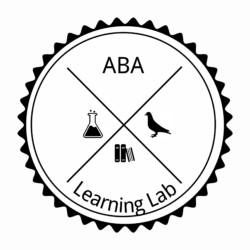James Macon, M.Ed., BCBA
Thanksgiving Day is about cooking and eating amazing food, gathering with family and loved ones, showing gratitude for the year, and watching some football. It’s a true American holiday. Seeing a lot of family all at once can be a stressful situation though, and that’s especially true if you have a child with autism or sensory needs. Here are some helpful ABA strategies to get the most out of the holiday.
What to Eat, and How to Try New Things
Thanksgiving dinner (and her subsequent delicious leftover lunches and snacks) have a lot of variety and flavors in them. For some kids with autism, those varieties and flavors mean nothing… all they want are some good ol’ chicken nuggets.
There are many reasons why a child may avoid trying new foods, and it’s different for each individual. Sometimes it’s a texture thing. Sometimes it’s the taste or smell. Sometimes, it’s even about the color of the food.
If you interested in teaching your child to try some new foods, try setting up some practice opportunities with the food a day or 2 before the holiday. This is a good way to have your child get some prior exposure and see what they like.
Behavior Analysts use something called the Premack Principle in situations like this. The principle states that the opportunity to do a more preferred activity can reinforce a less preferred activity. In our example, the opportunity to eat chicken nuggets or dessert can reinforce eating less preferred food (or trying new food).
This procedure usually starts out really, really small. For example, if you try a very, very tiny bite of (e.g., turkey, or stuffing, or cranberry sauce, etc.), you get a big, delicious chicken nugget. Over time those unpreferred foods can become favorites.
If your kid still isn’t interested in trying new foods, that’s OK, and there’s no need to make it a power struggle. Plan on having their preferred foods handy and available at dinner. At the end of the day, the holiday is about eating good food, and being with people we love, and there’s no reason to lose sight of that.
Avoiding Meltdowns and Finding a Calm Place
All the noise, people, and demands of the holiday can be a bit stressful if you’re a kid with autism (or heck… even if you’re a typical kid or adult!). An appropriate way to deal with this stress is to ask for a break. Sometimes that can be difficult for our kids with autism though, especially if they’re with unfamiliar people and at an unfamiliar place.
Plan on reviewing ahead of time ways that your kid can ask for a break. Practice it and go through the motions. As a preventative strategy, it’s a good idea to find a secluded, safe place that act as a break area ahead of time.
If Thanksgiving is at your house, this is easy. If its at Grandmas or another relative, ask ahead of time. While your child may not need to use it, better to be prepared!
Triggers
We all have “triggers” that lead to certain behaviors, be them good or bad. Someone says hello, we say hi back. Our wakeup alarm goes off, we hit snooze. The stoplight turns yellow, we slow down. For our kids with autism, triggers can sometimes be hard to spot, or can sometimes lead to a meltdown (e.g., my cousin is using my train, so I scream and cry).
Meltdowns occur as a form of communication. And while the form may be inappropriate, the communication is not.
Plan on reviewing ahead of time what to do if certain triggers occur, and more appropriate ways to communicate those needs. If there are certain strategies you and your child have found effective in the past, practice them ahead of time.
The Most Important Thing
For some of us with special needs kids, planning a holiday with extended family or friends can be stressful. What will we do if our kids act up? How will our family respond? At times like these it’s important to not sweat the small stuff, and remember that Thanksgiving is about gratitude and sharing with those we love. With some proper planning ahead of time, everyone at the table can enjoy a great Thanksgiving!

